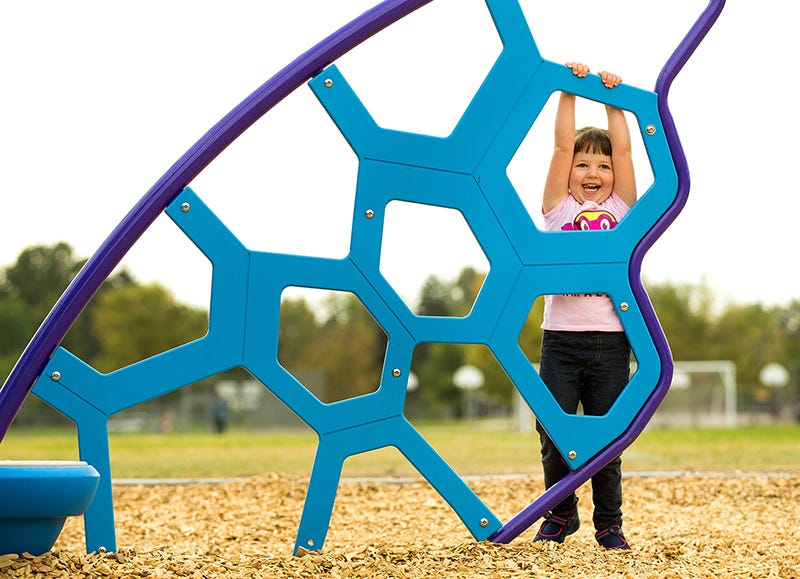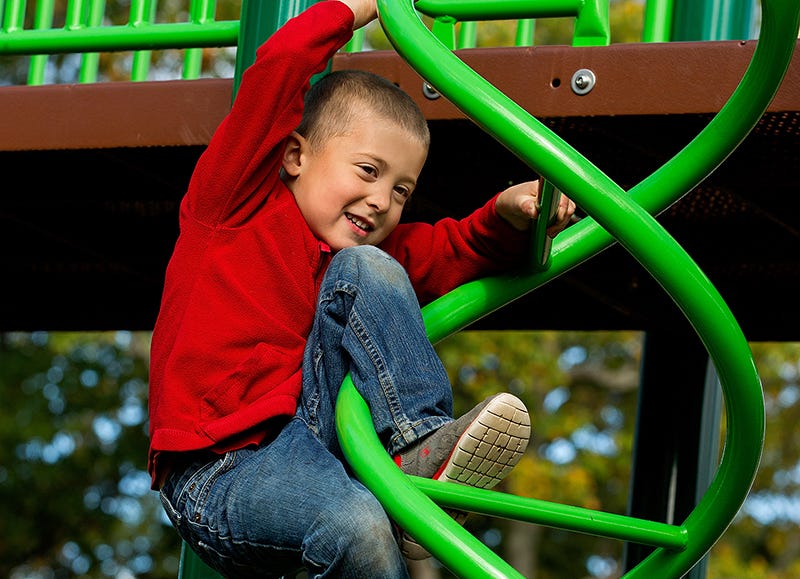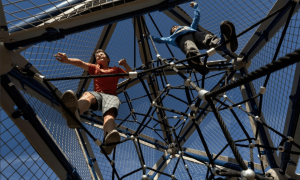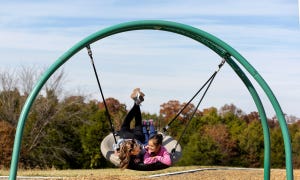 Four public schools in the Fort Worth, Texas, area are testing out a new program called LiiNK – Let’s Inspire Innovation ‘N Kids. The program, headed by researchers at Texas Christian University, calls for tripling kindergarten and first grade students’ recess time.
Four public schools in the Fort Worth, Texas, area are testing out a new program called LiiNK – Let’s Inspire Innovation ‘N Kids. The program, headed by researchers at Texas Christian University, calls for tripling kindergarten and first grade students’ recess time.
Instead of 20 minutes, once a day, kids at Eagle Mountain Elementary School go outside 4 times a day, for 15-minute increments. And recess is always held outside – even if it’s rainy or chilly.
Some teachers told the Today Show they were worried the playtime would cut into study time.
"There was a part of me that was very nervous about it," Donna McBride, a first-grade teacher at Eagle Mountain, told TODAY Parents. "I was trying to wrap my head around my class going outside four times a day and still being able to teach those children all the things they needed to learn."
Were her fears warranted?
No. Instead, kids are more focused. They’re more creative, and more likely to solve problems on their own rather than running straight to a teacher for help. One parent said it’s even helped her child make friends.
Debbie Rhea, the director of the LiiNK Project, wrote an article for The Washington Post describing why more playtime means more beneficial learning time: “Kids are built to move, and having more time for unstructured, outdoor play is essentially like a reset button. It not only helps to break up the day, but it allows kids to blow off steam and apply what is taught in the classroom to a play environment where the mind-body connection can flourish.”
 This isn’t a new concept. Between October 8 and October 19, 2009, Gallup conducted a survey of 1,951 principals and deputy, vice or assistant principals. It found that:
This isn’t a new concept. Between October 8 and October 19, 2009, Gallup conducted a survey of 1,951 principals and deputy, vice or assistant principals. It found that:
- More than 8 in 10 principals report that recess has a positive impact on academic achievement.
- Two-thirds of principals report that students listen better after recess and are more focused in class.
Based on the survey, The Robert Wood Johnson Foundation noted: “Recess should no longer be treated as an afterthought or an expendable block of time. Instead, it must be recognized as an essential part of the school day.”
PlayCore, GameTime’s parent company, has worked for years to prove the importance of play, pairing with researchers at N.C. State, Utah State University and more to promote best practices and illustrate the value of play in a child’s development.
Collaborating with their network of play scholars, PlayCore found that, “Play is an important vehicle for developing self-regulation as well as promoting language, cognition and social competence.”
What’s happening in these Texas schools is years of research coming to life.
And on that note, that’s enough research for now. It’s time for recess.
- Trails (27)
- Schools (193)
- Press Releases (109)
- Playground Funding (5)
- Play Science & Research (62)
- Parks & Recreation (363)
- Outdoor Fitness (138)
- National Demonstration Site (32)
- Landscape Architects (79)
- Inclusive Play (109)
- Daycare and Early Learning (62)
- Custom Play (38)
- College Campus (28)
- Churches (51)
- Challenge Course (30)
- Featured Projects (77)
- BluePrint for Play (18)
- Site and Shade (9)





